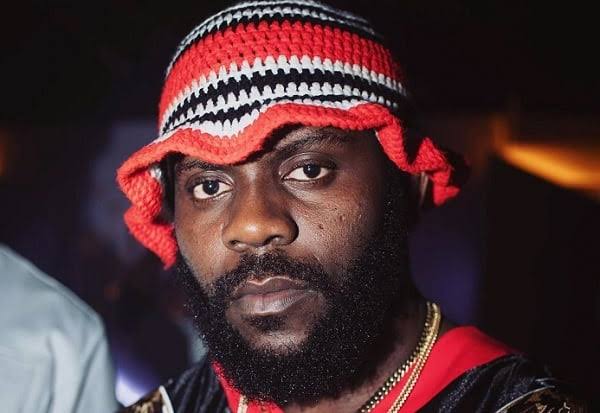The Nigerian national football team, the Super Eagles, found themselves at the center of a storm of public criticism following a disappointing 1-1 draw against South Africa in a crucial World Cup qualifier. The result, which left Nigeria on the precipice of missing their second consecutive World Cup, ignited a wave of anger and frustration among fans, many of whom directed their ire at the Nigeria Football Federation (NFF). Leading the charge was popular musician Odumodublvck, who publicly lambasted the NFF, labeling them a “terrible organization” and accusing them of robbing Nigerians of the joy that football brings. The sentiment expressed resonated deeply within the Nigerian football community, with many fans echoing the musician’s condemnation of the NFF’s perceived mismanagement.
The public outcry extended beyond mere disappointment and delved into specific grievances regarding the NFF’s handling of the qualifying campaign. Many fans pointed to questionable coaching appointments, erratic player selections, and a general lack of direction as contributing factors to the Super Eagles’ struggles. The repeated failures on home soil, including draws against Lesotho, South Africa, and Zimbabwe, were highlighted as particularly damaging, ultimately leaving the team’s World Cup hopes hanging by a thread. The concern extended beyond the immediate future, with fans lamenting the lost opportunities for key players like Victor Osimhen and Ademola Lookman, who, barring a miraculous turnaround, risked missing their prime years without experiencing football’s biggest stage.
Adding fuel to the fire were allegations of operational inefficiencies within the NFF. Critics pointed to delayed payments of player bonuses and remunerations, an inability to secure a consistently high-performing coach, and a perceived lack of accountability from the federation’s leadership. This perceived incompetence, coupled with the team’s on-field struggles, painted a bleak picture of Nigerian football, leading many to question the NFF’s commitment to the sport’s development and success. The calls for change ranged from demands for the dismissal of the current coaching staff to more radical suggestions of completely overhauling the NFF’s leadership structure.
The broader context of Nigerian football’s historical performance added another layer to the public’s frustration. Missing two consecutive World Cups would be an unprecedented low for a nation that has traditionally been a powerhouse in African football. The sense of national pride associated with the Super Eagles’ past achievements, including three Africa Cup of Nations titles and consistent World Cup appearances prior to 2022, made the current situation even more painful for fans. The criticisms extended beyond the realm of football and touched upon deeper societal issues, with some drawing parallels between the NFF’s perceived failings and the broader challenges of governance and accountability in Nigeria.
Looking ahead, the Super Eagles face a daunting task. With two matches remaining against Lesotho and Benin Republic, the team needs not only to win both games but also rely on other results going their way to secure a spot in the 2026 World Cup. The likelihood of such a scenario unfolding is slim, leaving many fans resigned to the prospect of another World Cup absence. The pressure on the players and the coaching staff is immense, and the upcoming matches will be a test of their resilience and determination. However, regardless of the outcome of these final qualifiers, the larger questions surrounding the NFF’s leadership and the future direction of Nigerian football will remain.
The aftermath of the South Africa draw has become a moment of reckoning for Nigerian football. The public outcry, fueled by disappointment and frustration, has exposed deep-seated concerns about the state of the game in the country. The NFF faces immense pressure to address these concerns and take concrete steps to rebuild trust and restore the Super Eagles to their former glory. The path forward remains uncertain, but the passionate response from fans, including prominent voices like Odumodublvck, serves as a powerful reminder of the importance of football to the Nigerian people and the urgent need for change.














